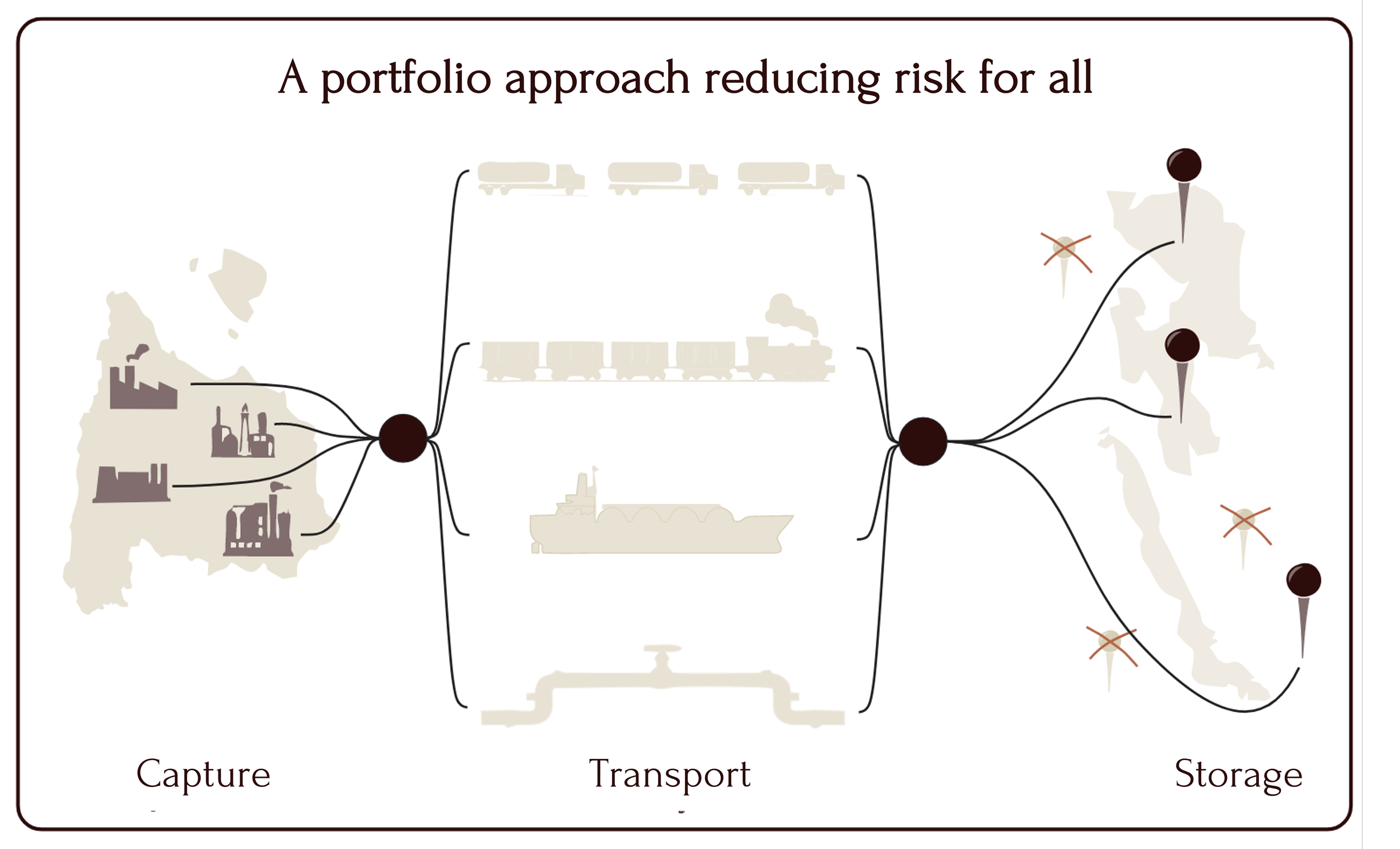Why a portfolio approach is key in de-risking CCS projects
With the EU’s Net Zero Industry Act accelerating momentum for CCS, large-scale projects face significant risk. A portfolio approach can reduce exposure and unlock success.
In the rapidly evolving fields of Carbon Capture and Storage (CCS), the recent implementation of the EU’s Net Zero Industry Act has given the sector new urgency. Yet, critical risks remain – particularly in the CCS business value chain, where interdependencies between capture, transport and storage mean that delays or failure at one stage can jeopardise entire projects.
For example, a CO₂ storage provider cannot make a final investment decision (FID) involving billions of euros without firm commitment from an emitter. And no emitter should build an expensive capture facility unless the associated storage site is de-risked and likely to become operational.
We believe a portfolio approach is essential. Rather than relying on a single storage site, emitters should join forces and collaborate with several storage providers. This can reduce risk on both sides and make room for more resilient partnerships.
Major risks and interdependencies
One of the core challenges in CCS is the high geological uncertainty tied to CO2 storage. It’s estimated that less than half of the currently identified storage sites will prove suitable for long-term injection. This is due to factors such as geological conditions, regulatory complexity, and technical or commercial barriers.
In some countries, public funding for CCS comes with financial penalties if a project is delayed or fails. This adds another layer of risk that must be managed carefully – and early.
Distributing risk before FID
Given these uncertainties, emitters should adopt a portfolio approach before committing to a final investment decision. By spreading engagement across multiple potential storage sites, they can reduce their exposure and improve the odds that at least one viable storage solution is secured.
It’s a pragmatic strategy that acknowledges complexity and prepares for it.
Thorough due diligence is key
To succeed with any CO₂ storage project, technical due diligence is crucial. This includes integrating 2D and 3D seismic data, well data, reservoir simulations, well integrity reviews and structured risk assessments. The goal is to ensure that each site is viable for long-term CO₂ storage with low risk for leakage.
In our view, a portfolio approach is not only a smart strategy. It’s a necessity in the CCS business value chain – reducing risk and building a reliable, scalable CCS industry.
Facts | Portfolio approach
A portfolio of CO₂ storage sites means working with multiple storage locations or providers, instead of relying on a single site. This strategy helps manage geological and project-related uncertainties and increases the likelihood that at least on site will reach operational status.


